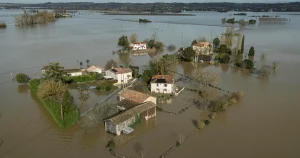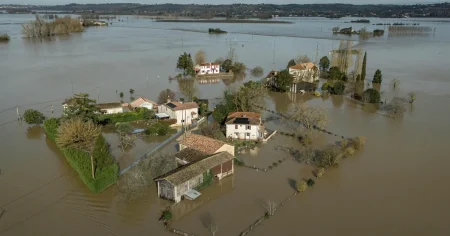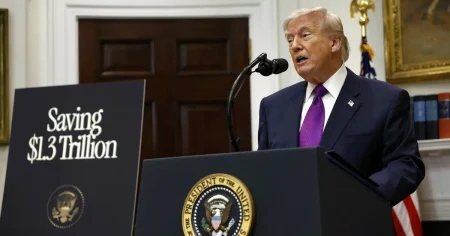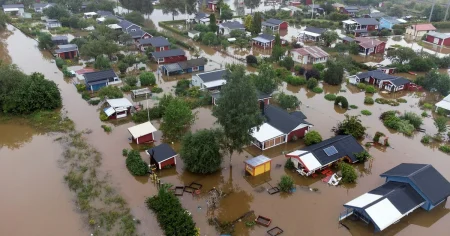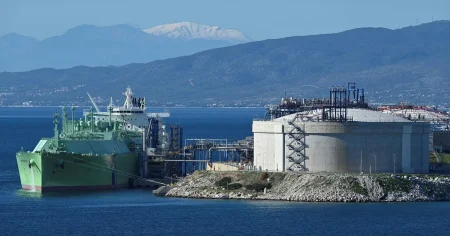The Shifting Sands of Climate Action: A Retreat from Ambition
The year 2025 has dawned with a disheartening backslide in global climate action. The re-emergence of climate-skeptic leadership in major economies, coupled with a growing emphasis on economic pragmatism over environmental urgency, has created a chilling effect on the momentum of the green transition. This shift in priorities is evident in both national and international arenas, with governments and political blocs alike exhibiting a reluctance to embrace the ambitious targets and transformative policies necessary to avert the escalating climate crisis. The rhetoric of "balance" and "realism" often masks a retreat from responsibility, prioritizing short-term economic gains over the long-term well-being of the planet and its inhabitants.
The decision by some nations to step back from previously agreed-upon international climate accords signals a troubling disregard for the global consensus on the urgency of climate action. This retreat from multilateral commitments undermines the collaborative spirit essential for tackling a challenge that transcends national borders. Furthermore, the emphasis on aligning national climate targets with less ambitious regional goals effectively lowers the bar for climate action, creating a race to the bottom instead of a concerted effort to achieve the necessary reductions in greenhouse gas emissions. The justifications for such a slowdown often center around economic concerns, arguing that aggressive climate action would impose undue burdens on industries and consumers. However, this shortsighted perspective fails to account for the far greater economic costs of inaction, which include the escalating expenses of climate-related disasters, infrastructure damage, and the disruption of essential resources like food and water.
The argument for aligning national targets with regional standards often serves as a smokescreen for a lack of independent ambition. By deferring to the lowest common denominator, governments can avoid the difficult political decisions required to implement meaningful climate policies. This abdication of leadership is particularly alarming in light of the increasingly dire warnings from climate scientists, who emphasize the rapidly closing window of opportunity to avert catastrophic climate change. The focus on "realistic" climate goals often translates to targets that are politically palatable rather than scientifically sound, ignoring the urgency of the situation and the irreversible consequences of delayed action. This approach represents a dangerous gamble with the future, prioritizing short-term economic considerations over the long-term survival and well-being of both current and future generations.
The consequences of climate inaction extend far beyond economic considerations, impacting various facets of human life and the natural world. Rising global temperatures contribute to more frequent and intense extreme weather events, such as heatwaves, droughts, floods, and wildfires, which displace communities, disrupt livelihoods, and claim lives. The changing climate also exacerbates existing inequalities, disproportionately affecting vulnerable populations who lack the resources to adapt to the changing environmental conditions. Furthermore, the impacts of climate change extend to global health, contributing to the spread of infectious diseases, respiratory illnesses, and heat-related deaths. The escalating costs of climate adaptation and disaster relief strain national budgets, diverting resources away from essential services like education, healthcare, and infrastructure development.
The political discourse surrounding climate change often fails to adequately capture the urgency and gravity of the situation. Rhetoric focusing on economic trade-offs and the need for "balance" obscures the true cost of inaction, which includes the irreversible damage to ecosystems, the displacement of communities, and the loss of human lives. The framing of climate action as an economic burden ignores the potential for innovation and economic growth that can arise from transitioning to a cleaner, more sustainable energy system. Furthermore, the emphasis on "realistic" climate goals often downplays the severity of the climate crisis and the urgent need for transformative change. This discourse of delay and compromise serves to perpetuate the status quo, allowing the fossil fuel industry to maintain its dominance and preventing the necessary shift towards a sustainable future.
The urgent need for ambitious climate action demands a departure from the current trajectory of complacency and inaction. Governments and international organizations must prioritize scientifically informed targets and implement policies that accelerate the transition to a low-carbon economy. This includes investing in renewable energy technologies, promoting energy efficiency, implementing carbon pricing mechanisms, and protecting and restoring natural ecosystems. Furthermore, it is essential to recognize the interconnectedness of climate change with other global challenges, such as poverty, inequality, and biodiversity loss, and to adopt integrated solutions that address these issues holistically. The future of the planet depends on a fundamental shift in mindset, from one that prioritizes short-term economic gains to one that embraces long-term sustainability and the well-being of all.



